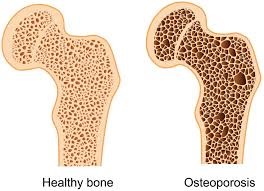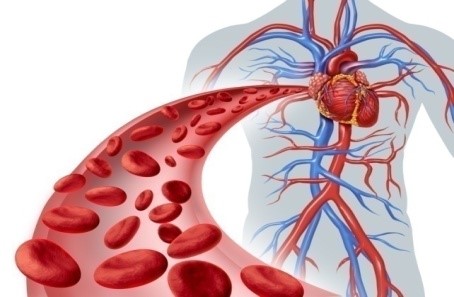ROLE OF VITAMIN D IN HUMAN BODY
Vitamin D has an important role in multiplication of cells, and immune function. It is an important factor in prevention/treatment of some forms of cancer, osteoporosis, rheumatoid arthritis, multiple sclerosis, hypertension, cardiovascular disease, obesity, psoriasis, and psychiatric diseases.
Osteoporosis is a condition that weakens bones, making them fragile and more likely to break. It is one consequence of not getting enough calcium and vitamin D. The main function of vitamin D is maintaining normal levels of calcium in the blood. Since there is less of vitamin D in the body, it reduces the absorption of calcium from intestine also. This condition in the long-term causes osteoporosis. Vitamin D also reduces the risk of causing rickets in children and osteomalacia in adults.

Cancer is an abnormal growth of cells. There are more than 100 types of cancer, including breast cancer, skin cancer, lung cancer, colon cancer, prostate cancer etc. Vitamin D may protect against cancer of intestine and also cancers of the prostate gland and breast. Vitamin D inhibits new cell formation and it reduces inflammation in the body.

Diabetes is a number of diseases that involve problems with the hormone insulin. Normally, the pancreas (an organ behind the stomach) releases insulin in the body to store and use the sugar and fat from the food. Diabetes can occur when the pancreas produces very little or no insulin, or when the body does not respond appropriately to insulin. Vitamin D may play a role in the glucose metabolism. Vitamin D increases insulin secretion and reduces blood glucose level.

When the heart beats, it squeezes and pushes blood through the arteries to the rest of the body. This force creates pressure on those walls of blood vessel. This is called as blood pressure. Low vitamin D level in the blood is associated with blood pressure. Vitamin D deficiency in pregnancy has also been associated with an increased risk of preeclampsia (increased blood pressure). Vitamin D regulates the secretion of one enzyme called rennin from kidneys which controls the blood pressure.

Chronic pain is that pain which lasts for more than 12 weeks such as lower back pain. It may persist often for months or even longer. There is a link between vitamin D deficiency and bone and muscle pain. Vitamin D increases muscle strength and decrease lower back and lower-limb pain if taken for longer duration of time.

The introduction and multiplication of microorganisms such as bacteria, viruses, and parasites that is not normally present within the body is called infection. Viral infections such as the common cold and influenza occur more frequently during winter months when vitamin D levels are the lowest in the body. Vitamin D increases the killing activity of white blood cells (defense cells of the body) and hence reduces the risk of infections.

